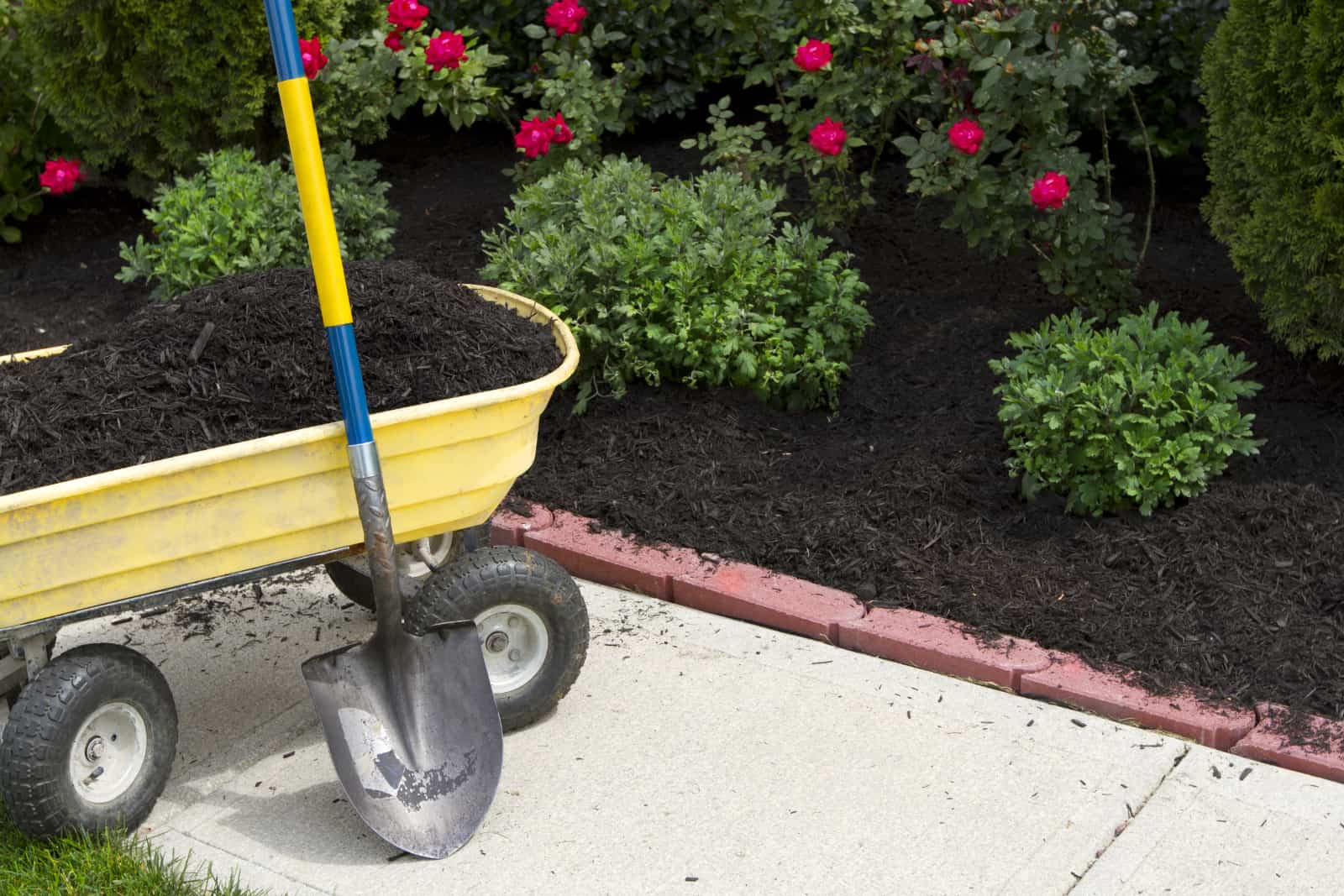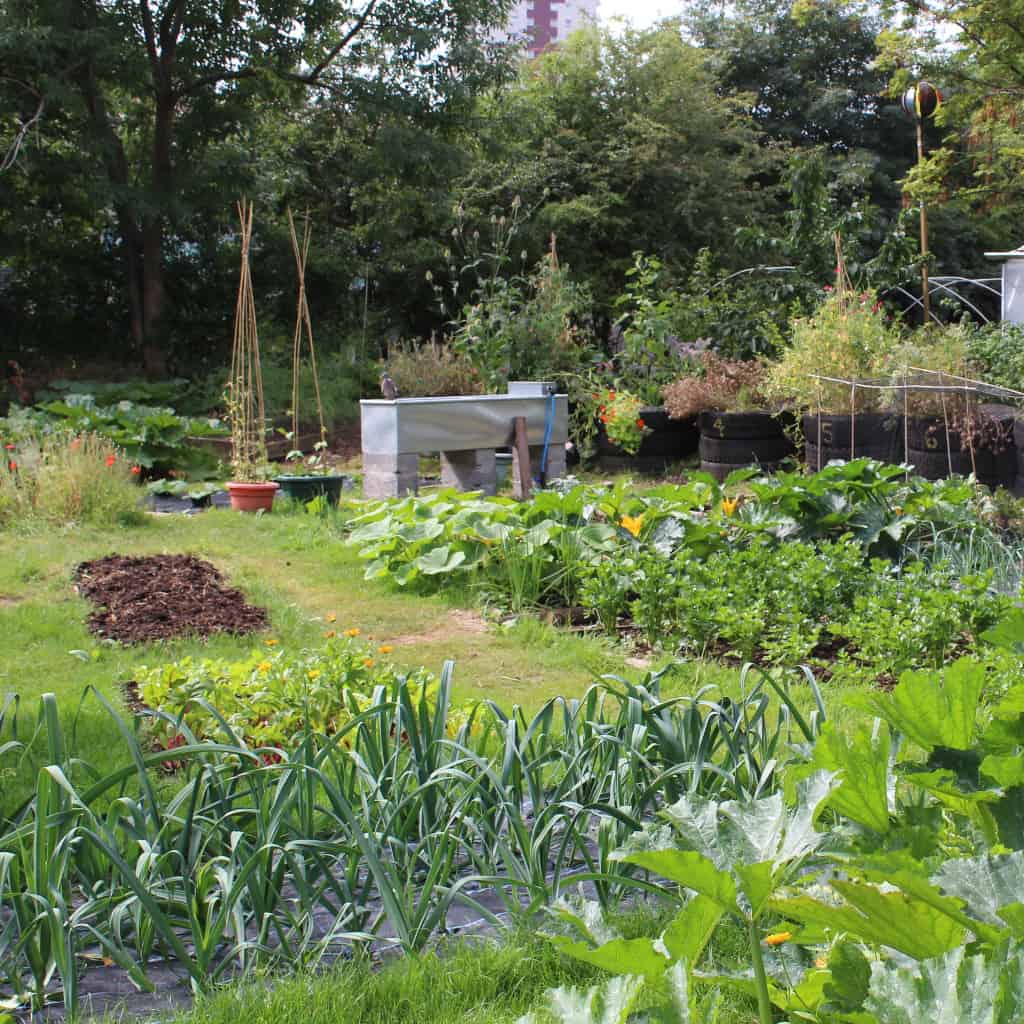Introduction
Are you looking to transform your garden into a beautiful and thriving oasis? You don’t need to break the bank to achieve it. With a little creativity and some cost-effective methods, you can improve your garden naturally and economically.
Why improving your garden is important and how it can be done naturally and economically
Improving your garden has numerous benefits, from creating a relaxing outdoor space to enhancing your property value. Here are 10 natural and economical ways to spruce up your garden:
- Compost: Start a compost pile to create nutrient-rich soil for your plants.
- Grow native plants: Native plants are adapted to your region’s climate, requiring less water and maintenance.
- Use organic fertilizers: Opt for natural fertilizers like compost tea or seaweed extract, which promote healthy plant growth.
- Mulch: Mulching helps conserve water, reduce weed growth, and improve soil quality.
- Attract beneficial insects: Plant flowers that attract pollinators and beneficial insects to control garden pests naturally.
- Create biodiversity: Introduce a variety of plants to create a balanced ecosystem that supports wildlife.
- Plant herbs: Grow your own herbs for culinary use, saving money on store-bought herbs.
- Divide and share plants: Split perennial plants and share them with friends and neighbors to expand your garden.
- Water wisely: Install a rain barrel to collect rainwater and use it for watering your garden.
- Reuse and repurpose: Give new life to old containers, furniture, or decorations by repurposing them in your garden.
By incorporating these natural and cost-effective methods into your garden care routine, you can enjoy a thriving and beautiful garden without breaking the bank.
Soil Preparation
When it comes to creating a beautiful and thriving garden, the first step is to prepare the soil properly. Fortunately, there are several natural and economical ways to improve your garden without breaking the bank.
1. Composting: Turning kitchen waste into nutrient-rich compost
Composting is an excellent way to recycle kitchen scraps and yard waste. By creating a compost pile, you can turn these organic materials into nutrient-rich soil that will nourish your plants. Not only is composting environmentally friendly, but it also reduces the need for chemical fertilizers.
2. Mulching: Using organic materials to retain moisture and suppress weeds
Mulching is a simple but effective gardening technique. By spreading a layer of organic materials, such as straw, wood chips, or grass clippings, on the soil surface, you can retain moisture, suppress weed growth, and prevent soil erosion. Mulching also adds organic matter to the soil as it breaks down, enhancing its fertility.
3. Vermicomposting: Harnessing the power of worms to create nutrient-rich soil
Vermicomposting is similar to traditional composting, but it involves the use of worms. These amazing creatures break down organic matter into a nutrient-rich castings called vermicompost. By setting up a vermicomposting bin at home, you can produce high-quality soil amendment for your plants.
By incorporating these natural and economical soil preparation techniques into your gardening routine, you can create a healthy and productive garden without relying on synthetic fertilizers and chemicals.
Natural Pest Control
1. Companion planting: Using plants to deter pests and attract beneficial insects
Companion planting is a natural and economical way to keep pests at bay and promote a healthy garden. By strategically planting certain plants together, you can deter pests that are repelled by these plants, and attract beneficial insects that prey on garden pests. For example, planting marigolds alongside tomatoes can help deter nematodes and aphids. Research which plants have a symbiotic relationship and integrate them into your garden design.
2. Homemade insecticides: Creating your own pest control solutions using common household ingredients
You can make your own effective insecticides using everyday household items. For instance, a simple mixture of water and dish soap can be sprayed on plants to control aphids and spider mites. Other natural options include using garlic, onion, or chili pepper solutions. Experiment with different recipes and find out what works best for your garden.
3. Beneficial insects: Attracting ladybugs, bees, and other helpful bugs to your garden
Invite beneficial insects to your garden by providing them with the food and habitat they need. Planting flowers such as lavender, daisies, and sunflowers will attract ladybugs and bees, which are natural predators of common garden pests. Additionally, creating small habitats like insect hotels or leaving some undisturbed areas for insects to live in will encourage beneficial insects to take up residence in your garden.
By implementing these natural pest control methods, you can maintain a healthy garden while minimizing the use of harmful chemicals. Your plants will thrive, and you can enjoy the benefits of a beautiful and flourishing outdoor space.
Water Conservation
1. Rainwater harvesting: Collecting rainwater to reduce water usage
Rainwater is a free and plentiful resource that can be used to irrigate your garden. Install rain barrels or utilize a rainwater harvesting system to catch and store rainwater for later use. This not only reduces the need for municipal water, but it also helps prevent runoff and erosion.
2. Drip irrigation: Delivering water directly to plant roots for maximum efficiency
Drip irrigation is a precise method of watering plants that delivers water directly to the roots, minimizing evaporation and runoff. By providing water exactly where plants need it, you can improve water efficiency and ensure optimal plant growth.
3. Xeriscaping: Designing your garden to minimize water needs and maximize drought tolerance
Xeriscaping involves designing your garden with drought-tolerant plants and water-efficient landscaping practices. By selecting plants that are native or well-adapted to your region’s climate, you can minimize water requirements and maintenance. Additionally, using techniques such as mulching and proper soil preparation can help retain moisture in the soil and reduce water loss.
These are just a few examples of how you can conserve water while maintaining a beautiful and thriving garden. By implementing these practices, you can save both money and precious resources while creating a sustainable outdoor space.
Organic Fertilizers
1. Homemade organic fertilizers: Creating nutrient-rich plant food from natural ingredients
Creating your own organic fertilizer is a cost-effective and environmentally friendly way to improve your garden’s health. You can make them using easily available ingredients like banana peels, coffee grounds, eggshells, and vegetable scraps. These homemade fertilizers provide essential nutrients to your plants, helping them grow strong and healthy.
2. Compost tea: Making a liquid fertilizer using compost and water
Compost tea is a natural liquid fertilizer that is rich in beneficial microorganisms and nutrients. To make compost tea, simply add compost to water and let it steep for a few days. Then, strain the liquid and use it to irrigate your plants. This nutrient-rich tea enhances soil fertility, promotes healthy root development, and improves overall plant growth.
3. Green manure: Planting cover crops to replenish nutrients and improve soil health
Green manure involves planting cover crops like clover, buckwheat, or vetch in your garden. These cover crops help suppress weeds, prevent erosion, and improve soil structure. When the cover crops are mature, you can turn them into the soil, adding organic matter and nutrients. This natural method not only replenishes nutrients but also increases soil fertility and provides additional benefits such as attracting beneficial insects.
By utilizing these natural and economical ways to improve your garden, you can create a thriving ecosystem that benefits both your plants and the environment. These methods not only provide essential nutrients but also improve soil health, promote biodiversity, and reduce the use of chemical fertilizers. Embracing organic gardening practices will contribute to a healthier and more sustainable garden for years to come.
Natural Weed Control
1. Mulching: Preventing weed growth by covering the soil surface
A cost-effective and natural way to control weeds in your garden is through mulching. By covering the soil surface with a layer of organic materials like straw, wood chips, or compost, you can prevent sunlight from reaching weed seeds, inhibiting their growth. Besides suppressing weeds, mulching also helps retain soil moisture and regulate temperature.
2. Hand weeding: Removing weeds manually to eliminate competition for nutrients
Another economical method to combat weeds is good old hand weeding. With a little bit of effort and perseverance, you can eliminate unwanted plants from your garden by pulling them out from the root. Hand weeding not only removes existing weeds but also reduces competition for nutrients, allowing your desirable plants to thrive.
3. Vinegar solution: Using vinegar as a non-toxic weed killer
Vinegar, particularly white vinegar with a high acetic acid concentration, can be an effective natural weed killer. Mix one part vinegar with three parts water and add a few drops of dish soap, then spray it directly on the weeds. The acetic acid in vinegar disrupts the plant’s cell membranes, causing it to dry out and die. Do note that vinegar can also harm desirable plants, so use it carefully and selectively target only the weeds.
These are just a few of the many natural and economical ways you can improve your garden while keeping it weed-free. By implementing these practices, you can create a lush and thriving garden without relying on harmful chemicals or expensive solutions.
Conclusion
In conclusion, improving your garden doesn’t have to be expensive or harmful to the environment. By implementing these natural and economical practices, you can create a thriving garden that benefits both you and the planet. Remember to start with enriching the soil, using compost and mulch, and choosing native plants. Then, save water through efficient irrigation methods and rainwater harvesting. Encourage biodiversity through companion planting and creating habitats for beneficial insects and birds. Finally, maintain a healthy garden by practicing organic pest control and regular maintenance.
Summary of the natural and economical ways to improve your garden
- Enrich the soil: Use compost and mulch to improve soil quality and provide essential nutrients.
- Choose native plants: They are adapted to the local climate and require less maintenance.
- Save water: Implement efficient irrigation systems and collect rainwater for watering.
- Companion planting: Plant compatible species together to deter pests and promote healthy growth.
- Create habitats : Build birdhouses, install bee hotels, and create butterfly gardens to attract beneficial insects and birds.
- Organic pest control: Use natural methods like handpicking pests or introducing beneficial insects.
- Regular maintenance: Keep your garden tidy by weeding, trimming, and pruning regularly.
Benefits of adopting these practices for the environment and your overall well-being
By adopting these natural and economical practices, you not only contribute to a healthier environment but also enjoy the following benefits:
- Reduced water usage and lower water bills.
- Avoidance of harmful chemicals and pesticides, leading to a safer and more sustainable ecosystem.
- Increased biodiversity and attraction of pollinators that can improve crop yields.
- Aesthetically pleasing garden that provides a sense of relaxation and well-being.
Additional resources for further exploration
For further information on natural and economical gardening practices, consider exploring these resources:
- Local gardening clubs and organizations.
- Online gardening forums and communities.
- Books on organic gardening and sustainable landscaping.
Remember, a beautiful and sustainable garden is within reach for everyone, and it starts with these natural and economical approaches.

